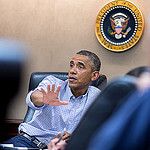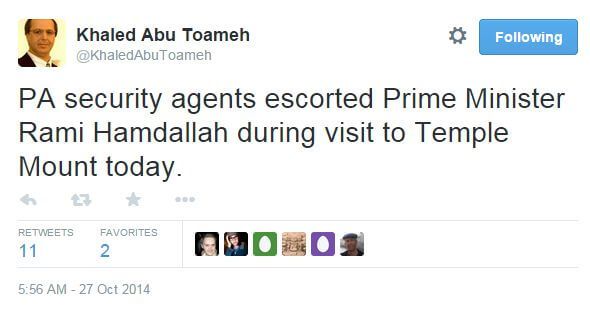Today’s Top Stories
1. According to Egyptian media reports, the terrorists responsible for the attacks that killed 31 soldiers were trained in Gaza and even used stolen IDF equipment. Hamas denies any role in the affair, and said it doesn’t
According to a report in the Egyptian El-Watan daily newspaper, initial investigation of the incident found that the attack was orchestrated by the Sinai-based Salafist extremist group Ansar Bayt al-Maqdis and that the bombers were trained in the Gaza Strip under Mumtaz Durmush, head of Gaza’s extremist Army of Islam terror group.
After infiltrating into the Sinai Peninsula via smuggling tunnels from Gaza, the bombers used stolen Israeli explosives and remote controlled devices to carry out the deadly attack, the pro-regime paper reported. It was not clear from the report how the Gaza-based terrorist groups obtained the Israeli equipment. Hamas is known to have amassed considerable amounts of Israeli army weaponry and equipment, some of which was used in the summer’s Israel-Hamas conflict.
2. One day after PA prime minister Rami Hamdallah toured the Temple Mount, Jerusalem Mayor Nir Barkat visited the holy site. The Islamic Waqf, which administers the Temple Mount denounced the mayor’s visit. Khaled Abu Toameh tweeted this eye-opening post script on Hamdallah, whose visit was coordinated with Israel.
3. The PA bugged the telephones of Mahmoud Abbas’s political rivals — on Abbas’s orders. Elliott Abrams explains why this should matter to the West:
Donors to the PA do not like to acknowledge and discuss these violation of human rights by the PA, because they do not fit into the usual narrative: Palestinians want and deserve self-government, but are denied it by Israel; the only problem for the cause of liberty is the Israeli occupation. Simple, but wrong: the PA itself is an increasingly repressive entity, with President Abbas abusing the powers of his office to fight political enemies (and protect corruption). This is not exactly news, but until it is recognized and fought by donors it will continue and expand.
It’s ironic that all those groups, especially in Europe, who consider themselves champions of Palestinian rights wish only to condemn Israel– while they continue to ignore the threat to Palestinians that emerges from their own officials and government bodies.
The Guardian is well-known for whistleblowing on Big Brother stories. Besides Edward Snowden and the NSA, I’m thinking of a disproportionately long 3,774 word-long article (that’s 94 column inches) about the fringe group, Breaking the Silence. I challenge The Guardian to treat the revelation with the same gravity.
4. New York Times Op-Ed Paints Israel As a Racist State:The Gray Lady jumps on the opportunity to magnify Israel’s imperfections and demonize an entire country.
5. In BDS, B is for Blacklist: What’s the difference between a “boycott” and a ‘blacklist,” and why should it matter to Israel activists?
Israel and the Palestinians
• Benyamin Netanyahu rebuffed international criticism of the latest authorization of 1,000 new housing units in the Jerusalem neighborhoods.
• Ahead of schedule, Gaza’s power plant resumed operations. According to Reuters, the plant is now “producing 90 megawatts out of a total potential capacity of 140 MW.” Rolling blackouts, nevertheless, will continue.
At peak demand, the Gaza Strip needs around 280 MW of power.
Beyond what is produced locally, Israel supplies around 120 MW by electricity lines and Egypt around 17 MW, meaning there is always a shortage.

• Worth reading: Palestinians won’t openly criticize Hamas, but Francesca Borri found plenty of fear and loathing in Gaza.
But if a formal interview is rare, the air of frustration here is unmistakable. Everyone — from grocers to students — offers a brief outburst, a quick sentence, an aside, a look of despair or a knowing glance that shows their desire for a Palestinian spring . . .
The war in Gaza may have started as one against Israel, but many here say it has also become a civil war, one fought between Palestinian factions, — between Hamas and Fatah and the various groups under their purview. These rivalries have done little but breed incompetence and stagnation. The Palestinian delegation to Cairo, for instance, which is in charge of rebuilding Gaza, doesn’t include a single economist or businessman.
• Two photographers covering a clash near the West Bank village of Silwad were hit by rubber bullets. Neither Majdi Muhammed (AP) nor Lazar Simeonov (Swiss freelancer) were seriously hurt. More on the story at the Daily Telegraph.
• Police in Johannesburg arrested 57 pro-Palestinian activists for disturbing the peace. They had protested inside a Woolworth store, protesting the shop’s sales of Israeli products.
• Israel to buy 25 more US-made stealth fighters
•Is Israeli-Palestinian peace possible? The Atlantic launched an interesting four-part series (I’m still digesting it) on the main obstacles: borders, security, refugees, and Jerusalem.
Commentary/Analysis
 • Pulling no punches, Bret Stephens (Wall St. Journal via Google News) slams the Obama administration’s treatment of Israel.
• Pulling no punches, Bret Stephens (Wall St. Journal via Google News) slams the Obama administration’s treatment of Israel.
The real problem for the administration is that the Israelis—along with all the other disappointed allies—are learning how little it pays to be on Barack Obama’s good side. Since coming to office in 2009, Israeli Prime Minister Benjamin Netanyahu has agreed, against his own inclination and over the objections of his political base, to (1) recognize a Palestinian state; (2) enforce an unprecedented 10-month settlement freeze; (3) release scores of Palestinian prisoners held on murder charges; (4) embark on an ill-starred effort to reach a final peace deal with the Palestinians; (5) refrain from taking overt military steps against Iran; and (6) agree to every possible cease-fire during the summer’s war with Hamas.
In exchange, Mr. Kerry publicly blamed Israel for the failure of the peace effort, the White House held up the delivery of munitions at the height of the Gaza war, and Mr. Obama is hellbent on striking whatever deal the Iranians can plausibly offer him.
Oh, and Mr. Kerry also attributes the rise of Islamic State to the Israeli-Palestinian conflict. Maybe if the Israelis grovel a bit more, Mr. Obama will oblige them by recognizing a Palestinian state as his parting act as president. Don’t discount the possibility.
• For more commentary/analysis, see cabinet minister Gilad Erdan (No shortcuts to Mideast peace), Ben-Dror Yemini (ISIS has nothing to do with Israel), Zalman Shoval (Anti-Semitism on the Temple Mount), and Alan Baker (Parliamentary recognition of Palestine legally, historically, and politically questionable), and David Bernstein (Gross incompetence at the State Dept.),
Rest O’ the Roundup
• Egypt’s already demolishing homes along the Gaza border to create a buffer zone. Israel’s former ambassador to Egypt, Zvi Mazel, told Fox News that a buffer zone free of buildings and vegetation would require the expulsion of 100,000 Bedouins. Tribal leaders are trying to prevail on Cairo to go with a less intrusive canal.
Hamas denounced the buffer zone idea, and Haaretz raises questions whether Cairo can afford to go all in:
A high-ranking Egyptian official told Haaretz that unlike in the past, the government and army are now determined to build the buffer zone. He said public opinion in Egypt, Sinai and particularly Rafah support the evacuation of thousands of citizens from their homes for this purpose. But the official added it was doubtful the government could bear the cost of establishing a buffer zone of the length, width and depth reported, together with the cost of evacuating so many people.
• Worth reading: the Washington Post looks at Hezbollah’s lost aura of invincibility. Sheikh Hassan Nasarallahs’ PR conundrum boils down to this: If ISIS continues to bloody Hezbollah, the Al Qaida spin off can claim it did to Hezbollah what the IDF failed to do.
• Jewish Kurds fear ISIS advances, call on Israel for rescue
Featured image: CC BY flickr/Hobvias Sudoneighm; electricity CC BY-NC-SA by flickr/Andy Morris
For more, see yesterday’s Israel Daily News Stream and join the IDNS on Facebook.


